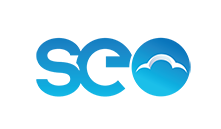

Founder & Director
As a finalist in the Australian Design Award and in various publications my SEO consultancy company has provided competitive prices with measured results. I personally work one on one with my clients to optimise results giving key ingredients to help get your website to the top of Google. My brand experience includes Monash university, Silvertop Taxi, Mercedes Benz and True Value Solar which I was the digital marketing manager. I am accessible, reliable and genuinely care for your business, if your business needs a kickstart with some nice graphic design, web design or SEO, get in touch today.
The Impact of Page Speed on SEO
Page speed, or the amount of time it takes for a web page to load, is a critical factor in determining the success of a website. Not only does it affect user experience and bounce rates, but it also has a significant impact on search engine optimization (SEO). In this article, we will explore the relationship between page speed and SEO, and how you can optimize your website for faster loading times.


Why Page Speed Matters for SEO
Search engines, such as Google, prioritize user experience and satisfaction above all else. Page speed is a crucial aspect of user experience because users are more likely to abandon a website that takes too long to load. This means that slow loading times can result in higher bounce rates, which negatively impacts SEO. In fact, research has shown that there is a direct correlation between page speed and bounce rates.
In addition to bounce rates, page speed also impacts the amount of time that users spend on a website. If a website is slow to load, users are less likely to engage with its content or explore additional pages, which can lead to lower session durations and fewer pages per session. These metrics are also important for SEO because they indicate the level of user engagement and satisfaction with a website.
How Page Speed Affects Search Engine Rankings
Google has publicly stated that page speed is a ranking factor in its algorithm. In other words, websites with faster loading times are more likely to rank higher in search engine results pages (SERPs) than slower websites. This is because faster loading times indicate a higher level of user experience and satisfaction, which is a top priority for Google.
Furthermore, Google has also introduced a mobile-first index, which prioritizes mobile-friendly websites with fast loading times. With more and more users accessing the internet on mobile devices, having a fast-loading mobile website is crucial for SEO success.
How to Optimize Page Speed for SEO
Now that we understand the importance of page speed for SEO, let’s explore some ways to optimize your website for faster loading times:
1. Compress Images and Videos
Images and videos are often the largest files on a web page and can significantly slow down loading times. To reduce file sizes, you can compress images and videos using various tools and software.


2. Minimize HTTP Requests
HTTP requests are made every time a user visits a web page, and each request takes time to complete. To minimize the number of HTTP requests, you can reduce the number of resources on a web page, such as images, videos, and scripts. You can also use browser caching to store frequently used resources on a user’s device, reducing the need for additional requests.
3. Use a Content Delivery Network (CDN)
A content delivery network (CDN) is a network of servers located around the world that store copies of your website’s content. When a user visits your website, the CDN will serve the content from the server closest to the user, reducing loading times.
4. Optimize Code and Scripts
Code and scripts can also slow down loading times, especially if they are large or inefficient. To optimize code and scripts, you can minify them, which removes unnecessary characters and spaces, and combine multiple files into a single file.





